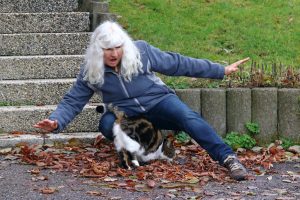Fall activity ideas for seniors, already?
Hard to believe that summer is almost over, isn’t it?
Well, summer being over doesn’t mean we cannot stay active and engaged.
Getting involved in fall activities is fun for the whole family,will help your loved one be engaged and will help everyone get some exercise!
That’s just too many benefits to ignore.
So let’s jump right in and learn of some fall activities to put on your calendar.
Fall activity ideas for seniors
- Go fruit picking – Local farms in your area will be harvesting right about now and will be thrilled to have you come fruit-picking.
- Get lost in a corn maze – This is definitely fun for the little ones but you will want to make sure to stay close to your loved one with Alzheimer’s or dementia.
- Go for a hayride.
- Hit a local amusement park before it closes down for the season. And speaking of amusement parks, they usually have a lot of fun fall activities going on at the parks right before Halloween. Make sure to check those out.
- Watch fireworks. This draws on the amusement park point above. They usually have shows you can watch for free if you’re willing to drive up close enough.
- Take a hike. The weather is cooler and more conducive for taking hikes.
- Try indoor mountain climbing. I always feel like this is a less dangerous alternative for those who love to take risks but who may not be physically up to climbing an actual mountain.
Even more fall ideas…
- Take a drive through the country. Late evening drives are the best, aren’t they?
- Make a meal together. Such a great memory-maker.
- Grill outside while you still can!
- Start an audio-book series that whole family can listen to.
- Carve a pumpkin.
- Go camping. Make sure this is safe for your elderly loved one. If they are prone to wander off, I would not recommend this activity.
- Build a bonfire. Make sure to stay safe!
- Find a natural water body and visit it. Rivers, lakes, waterfalls and the oceans always have a calming effect on people. At least it does on me!
And there’s 15 fall activity ideas for seniors!
Did you find this post helpful?
Share it with someone else who is looking for fall activity ideas for their loved one.






